The impact of a value chain approach in Nigeria
IFAD Asset Request Portlet
Asset Publisher
The impact of a value chain approach in Nigeria
26 April 2019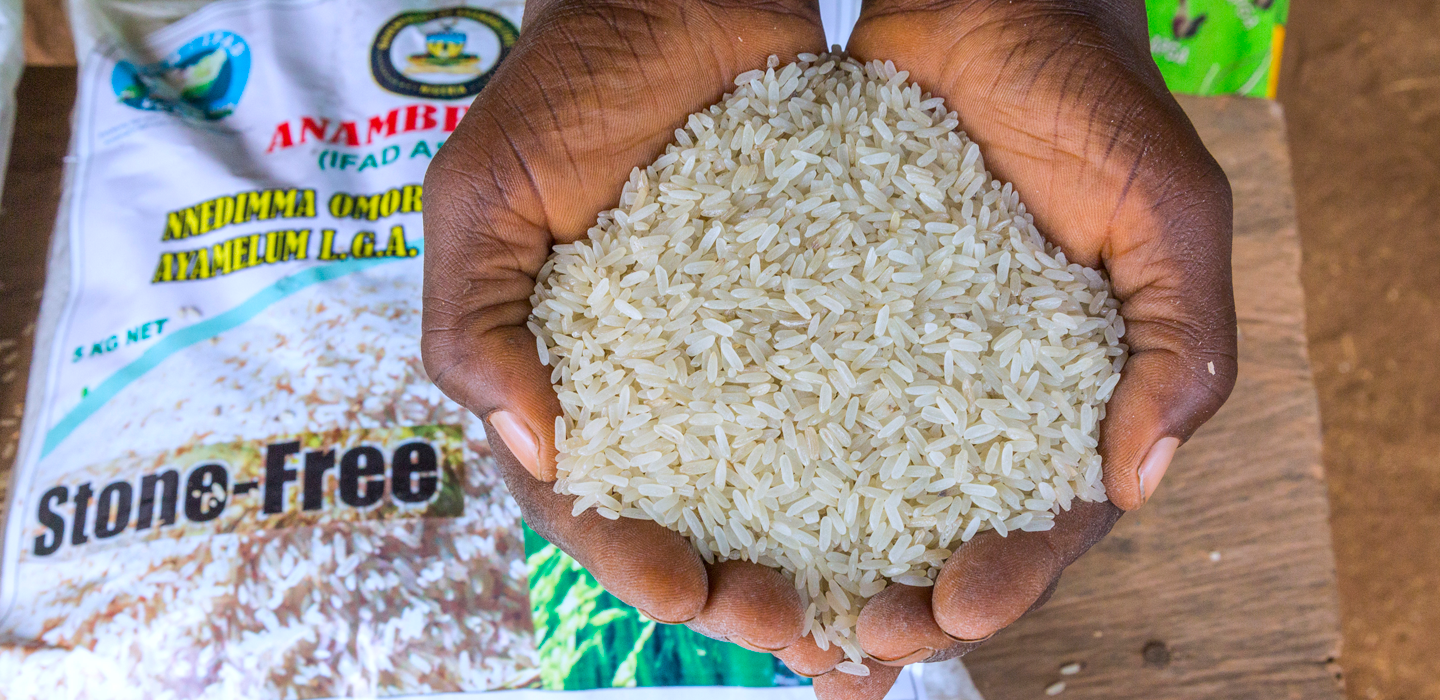
©IFAD/Andrew Esiebo/Panos
The IFAD-funded Value Chain Development Programme in Nigeria assists cassava and rice smallholder farmers through a value chain approach to enhance productivity, promote agro-processing and increased access to markets. The programme aims to transform the agricultural sector of rural Nigeria by achieving food security, increasing incomes and creating new employment opportunities.
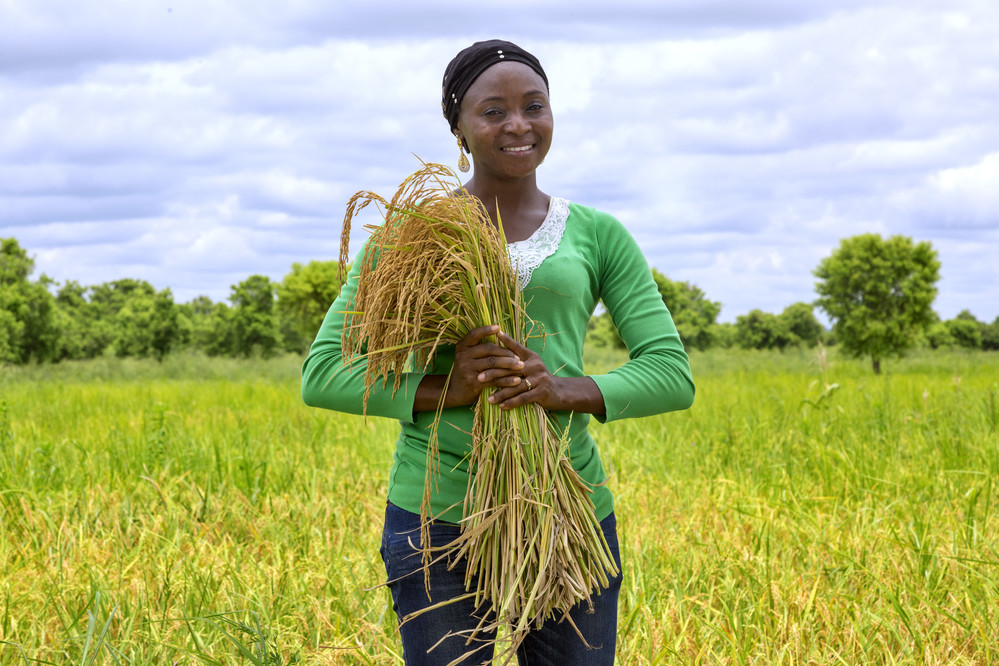
Sewuese Imandeh, 35, is one of the beneficiaries of the programme. Her primary source of income comes from cultivating yams, maize and rice. She began planting rice during the dry season after taking part in a training course for farmers in the community. In the past, community land went unused during the dry season. When new irrigation farming systems were introduced, Sewuese took advantage of the opportunity to plant year round and increase her income. Now, she plants rice on three hectares during the dry season.
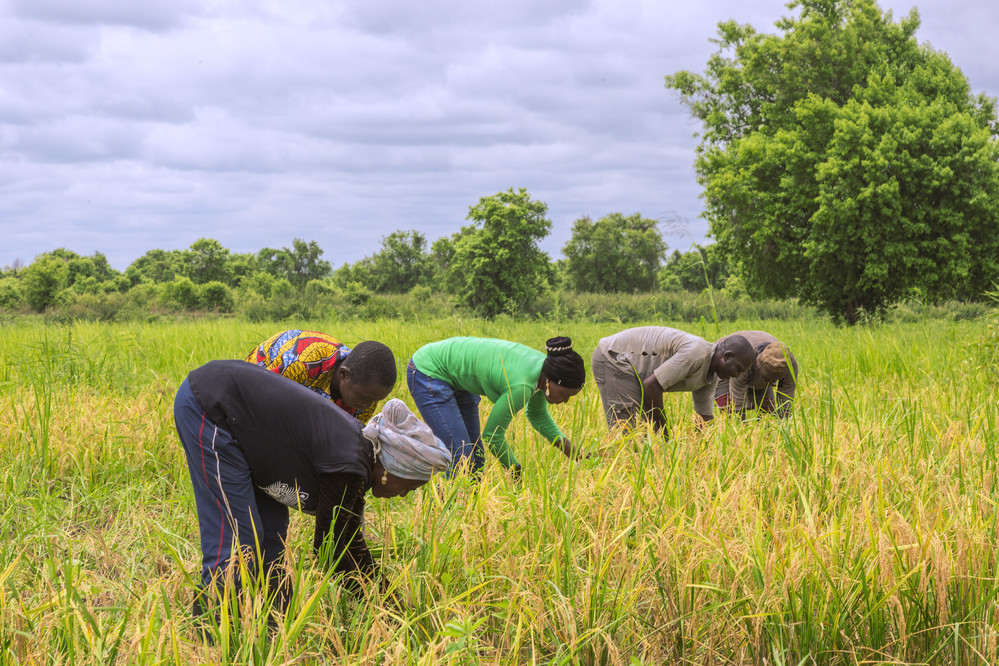
Sewuese had a successful harvest during her first dry season farming, and she is excited to expand in the coming years. Through the programme she has learned new cultivating practices, including how to grow improved seedlings. She now hopes to become the female version of Aliko Dangote, Africa's richest man within the agricultural sector. The knowledge she has gained has inspired her to one day be a major supplier of improved seeds in the middle belt of Nigeria.
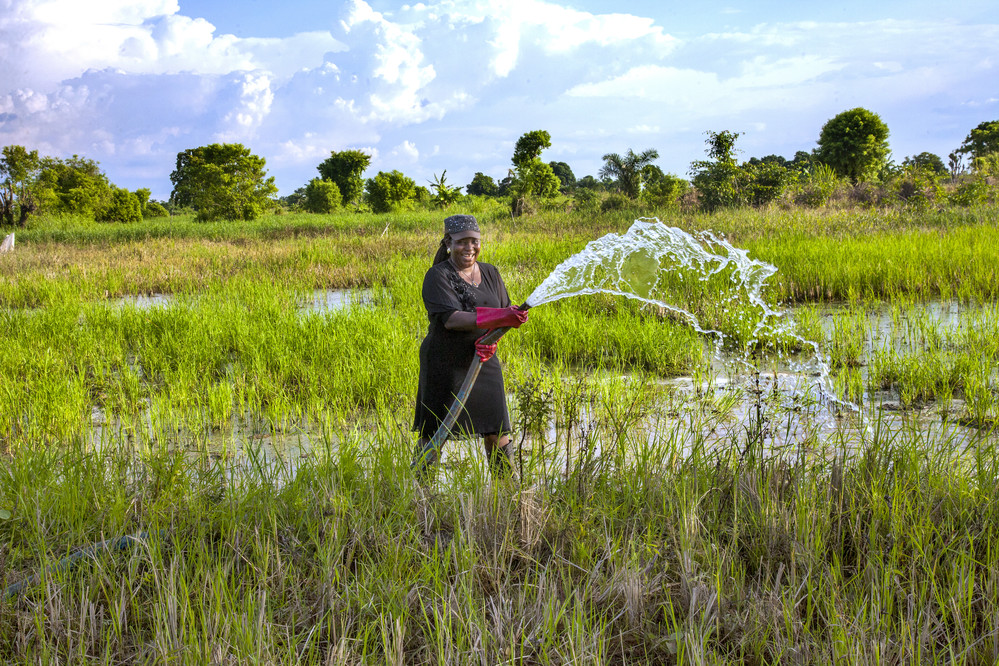
Juliet Ngozi Ebuo, 31, has also taken advantage of the new irrigation systems on her ten hectares of land. She is a rice farmer in Ayamelum, Anambra State, and belongs to the Divine Destiny Multipurpose Cooperative. Before joining the cooperative, Juliet was unhappy with her livelihood. She found farming to be tedious and unsatisfying. After joining Divine Destiny, she gained access to many of the resources and tools the IFAD-funded Value Chain Development Programme provides to cooperative members. The members have access to tractors, rice pulling machines, improved seedlings and training on dry season farming. This support helped cooperative members double their rice production and have resulted in increased incomes for beneficiaries like Juliet.
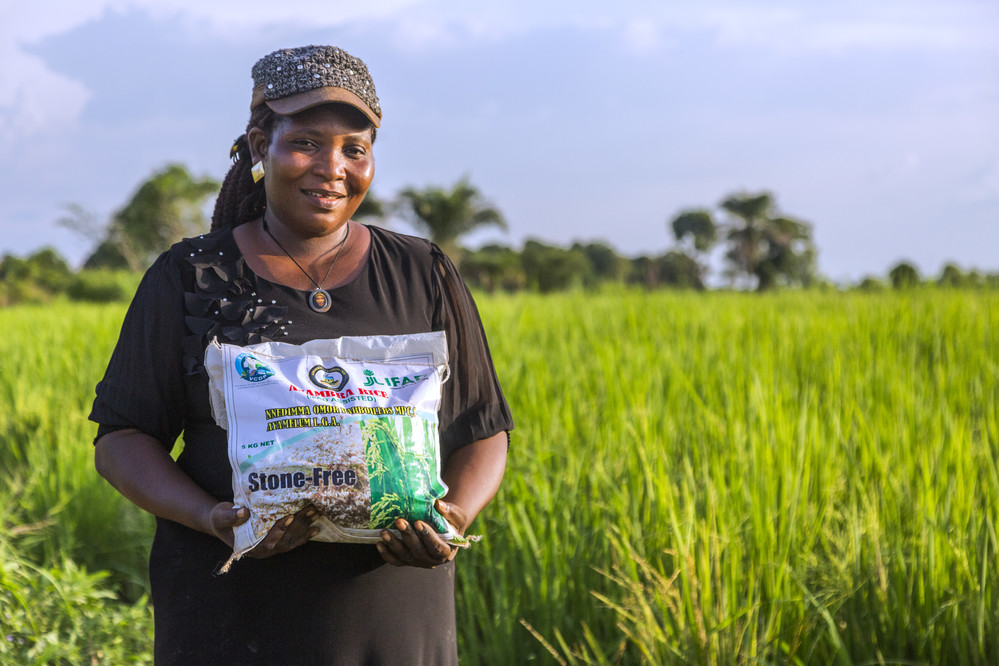
The Value Chain Development Programme makes farming more efficient and profitable. Beneficiaries like Juliet can now farm collectively and increase their yields and incomes. Today, Juliet has diversified her earnings, selling cosmetics, rice and fertilizer. She hopes to expand her farm and mobilize more farmers in her community to join her small cooperative so they can also take part in all of the benefits the programme has to offer.